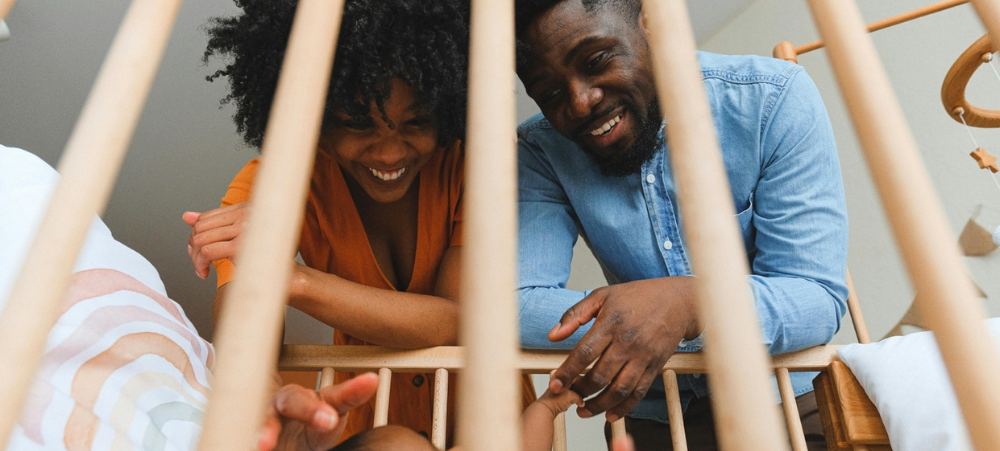One of the most magical parts of pregnancy is knowing that your baby is already learning about the world before they’re even born. While we often think of touch as the earliest sense to develop, many parents are surprised to discover just how early hearing plays a role in connecting you to your little one.
When Does Hearing Develop in the Womb?
By around 18 weeks of pregnancy, your baby’s ears have started forming and connecting to the brain. By 25 weeks, they begin responding to sounds. At first, the womb is a muffled, watery world, but by the third trimester, your baby can hear your voice, your heartbeat, and even muffled outside sounds like music or a sibling’s laughter.
By the time you reach the final weeks of pregnancy, your baby’s auditory system is fine-tuned enough to recognize your voice! This early familiarity is why newborns often calm when they hear their mother or father speak. It’s a sound they already know and love.
Why Sound Matters Before Birth
Sound isn’t just background noise for your baby, it’s a vital part of their neurological development. Research shows that prenatal exposure to voices and music helps babies:
- Begin distinguishing different tones and rhythms.
- Recognise the voices of their parents after birth.
- Form the foundation for early language skills.
Your voice is actively helping wire their brain for future communication.
How Parents Can Stimulate Their Baby’s Hearing in Utero
Encouraging healthy hearing development is simpler than you might think. Here are some gentle, bonding ways to nurture your baby’s auditory world:
- Talk and read to your baby. Your voice is the most powerful sound your baby hears. Read your favorite stories aloud or narrate your day. The rhythm and melody of your voice become familiar patterns.
- Sing often. Don’t worry about being in tune, your baby doesn’t mind. Singing promotes auditory recognition and can become a calming ritual both before and after birth.
- Play gentle music. Soft classical music, lullabies, or even favorite family songs can expose your baby to a range of sounds. Keep the volume low. Think of soothing background music, not a concert.
- Encourage bonding from both parents. Your partner’s voice also becomes familiar to your baby. Encourage them to talk, read, or sing directly near your bump.
Newborns show a preference for the language and even the accent or dialect they heard most in the womb, your daily conversations are shaping their early listening skills!
Caring for Your Baby’s Hearing During Pregnancy
While sound exposure is important, protecting your baby’s delicate hearing begins long before birth. A few tips:
- Avoid prolonged loud noise. Environments with heavy machinery, concerts, or very loud music can stress your baby’s developing auditory system.
- Maintain good maternal health. Conditions like infections, uncontrolled diabetes, or certain medications can affect hearing development. Always discuss concerns with your healthcare provider.
- Watch ototoxic substances. Some medications and chemicals are harmful to developing ears. Speak to your doctor before taking anything new.
- Prioritize prenatal checkups. Your baby’s hearing development is closely tied to overall growth and oxygen supply. Good prenatal care makes all the difference.
Beyond Birth: Supporting Lifelong Hearing Health
After your baby arrives, those early familiar sounds continue to comfort and connect them. But remember, even healthy newborns should have their hearing checked. Early detection of hearing difficulties can make a life-changing difference in speech, learning, and development.
At NB Hearing and Balance, we’re passionate about supporting families from the very start. Whether you’re curious about your baby’s in-utero hearing, preparing for their first hearing screening, or seeking guidance on lifelong hearing health, our caring team is here to help.
The Sweet Sound of Connection
Every time you talk, sing, or read to your baby during pregnancy, you’re doing more than bonding. You’re laying the foundation for their language, learning, and emotional connection with you. And that’s something worth tuning into.
Learn more about hearing development and schedule a consultation with one of our audiologists. We have various locations throughout Cape Town.
- Back-to-School Hearing Health Checklist for Children - January 5, 2026
- Supporting Balance Health Across the Lifespan: Why It Matters - November 3, 2025
- Tuning Into Sound: How Your Baby Hears You in the Womb - September 3, 2025





